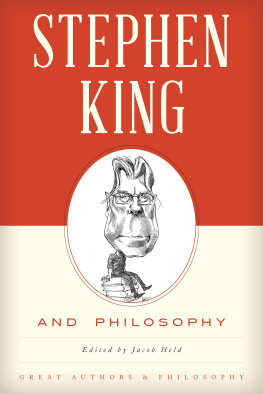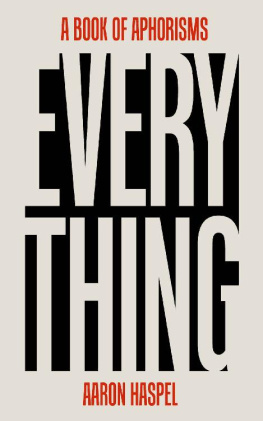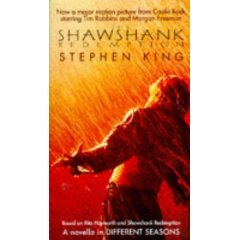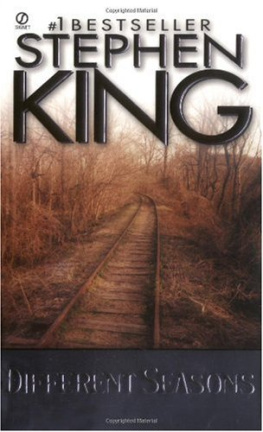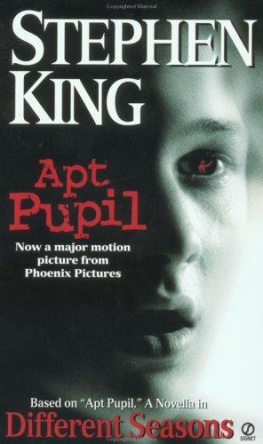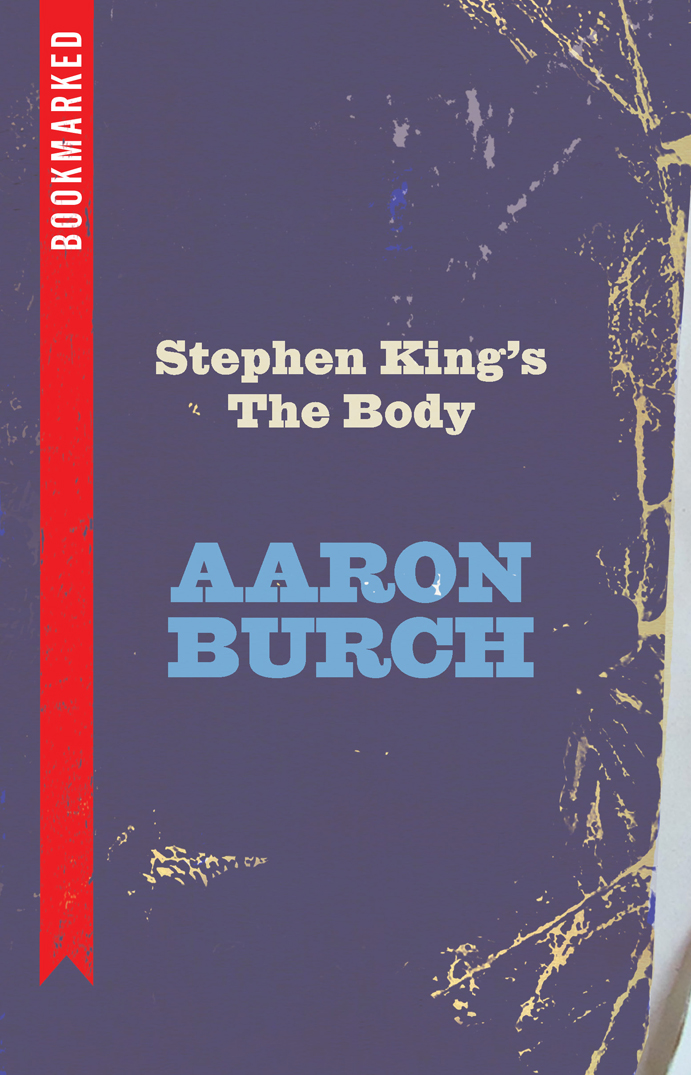
Copyright 2016 by Aaron Burch.
All rights reserved.
No part of this book may be used or reproduced in any manner without written permission of the publisher. Please direct inquiries to:
Ig Publishing
Box 2547
New York, NY 10163
www.igpub.com
ISBN: 978-1-63246-031-8 (ebook)
Contents
Guide
Contents
My brains the cliff, and my hearts the bitter buffalo.
Heart Cooks Brain, Modest Mouse
People tend to claim the book was better than the movie, but writers will accept influence from any medium, anywhere, at any time, so long as it provides fuel for the imagination. Life works the way it does and typically we dont get to choose what affects us most dramatically, what sticks deep in our consciousness and grabs hold and wont let go.
Especially when it comes to the category that falls under the header of the First Timethe first kiss, the first time passing an entire night alone in an empty house, the first touch of alcohol or some other soon-to-be beloved drug, the first day at schoolthat inventory of experiences in which we know instantly that what we believed to be true about life in general and ourselves in particular is heretofore transformed irrevocably. A guitarists first listen to Jimi Hendrix or Doc Watson. A painters first time before an actual Van Gogh. A novelists first reading of a work that challenges and changes all assumptions of what the novel can do, or be.
Maybe one of the most profound firsts for most of us is that which lies at the heart of Stephen Kings celebrated novella: the first encounter with a corpsethat dull fact of useless matter left behind once a human being passes on. The strangeness emanating from a human body that had once been alive, capable of friendship and worry and wonder just as we are; the bizarre metamorphosis of a living person now transformed into the inanimate, an object. Its kind of weird.
Of course The Body, and its subsequent (and surprisingly faithful) rendering into film by the director Rob Reiner, Stand by Me, are less about the encounter with a dead stranger than they are about the journey four young boys make to see the body beside some railroad tracks. Both works explore the nature of nostalgia and the peculiar purity of childhood friendship, and, without over-sentimentalizing the subject, how an action that began simply as something to do on a summer day can end up becoming the defining event in ones life.
One refreshing aspect of Aaron Burchs exploration here is its honesty: how many would readily cop to the fact that the movie version of a fictional work started his own journey as a writer, that a film fed his fundamental notions of storytelling, his lifelong thematic preoccupations? Kings novella came to Burch only later, and, colored already by what had been seen, the texts primary valuefor a time, at leastlay in how well it informed and compared with the movie that spoke to a young Aaron so deeply; the prose version of the story appears to have required more time for its unique impact and influence to make themselves known to the author-in-progress. This tension between the film-version and the word-version feeds a grand autobiographical accounting of the many ways in which a fundamental story can resonate in various manifestations, affecting one not only in terms of a developing creative vision but also in the creation of ones life.
Kirby Gann
June 2016
I was twelve going on thirteen when I first saw Stand By Me. I guess that would have made it 1990. As the narrator, Gordie Lachance, in a voiceover at the beginning of the film, says about the first time he saw a dead human being: a long time ago... but only if you measure in terms in years. This was slightly tweaked from the first chapter of The Body, the Stephen King novella the movie is based on: a long time ago... although sometimes it doesnt seem that long to me.
I have seen the movie many times over the last twenty-five years; more than the novella, it is what Ive most often referenced, both in my writing and in my life. It was formative, though whether that is because of the movie itself: the actors, the soundtrack, the cinematography; or the story; or just because of the moment in my own life when I saw it, Im not sure. I will admit that that uncertainty might be part of the magic. At least a small part of me fears what might happen when applying analysis to something held so close to the heart, by asking either too many questions, or maybe just the right questions. As King himself writes in that same first chapter of The Body:
The most important things lie too close to wherever your secret heart is buried, like landmarks to a treasure your enemies would love to steal away. And you may make revelations that cost you dearly only to have people look at you in a funny way, not understanding what youve said at all, or why you thought it was so important that you almost cried while you were saying it. Thats the worst, I think.
This entire first chapter, unlike any other in the novella, is italicized.

. This entire first chapter, unlike any other in the novella, is italicized.
We had a small house with a big yard, kind of on the outskirts of Lakewood, Washington. Unincorporated through my elementary and middle school years, Lakewood was then still a part of Tacoma, though pretty large to technically be a piece of something else. Its a city now, with everything incorporation brings with itgovernment, its own police and fire departments. Progress. Growing up, it felt like both part of somewhere else and not, neither city nor suburb. There were a lot of lakes, with rich people living on and around them, and then lots of sketchy areas, with pawn shops and adult bookstores; occasionally youd see an episode of Cops that had been filmed there. And in between, these pockets of neighborhoods where my friends and I grew up, pockets that seemed like the perfect place to be growing up. Whether I actually realized that then, or am only applying it now in retrospect, through the lens of distance and nostalgia, is hard to say. Maybe it didnt feel like that at the time; maybe kids growing up there now still think it feels that way.
One of my memories of this growing up is the glut of movies we watched as a family. My dad was the head gardener for the Seattle Public Library system, and I remember him always bringing home copies of VHS tapes; and when he wasnt bringing home whatever wasnt checked out, he was stopping at the local video store, or we were all going together as a family to pick out a movie. Walking up and down aisles of New Releases, Action, Comedy, is another nostalgia-tinted remembrance of something I miss.
One of the few specific memories I have from all this family movie watching is of my dad sitting me down and telling me that he and my mom wanted me to watch Stand By Me. They had watched it the night before, had loved it, and now wanted us all to watch it together. I dont know if that had been the plan all alongto screen the film to make sure it was suitable for my ageor if the idea to let me watch it had only occurred after their own viewing. I grew up relatively conservative Christian, and though strict would probably be too strong of a word to describe it, my brother and I didnt have free reign over what we were able to watch or listen to. Or maybe we did have free reign, but certain landscapes of that reign were discouraged. I have friends who were raised only slightly more conservative and were not allowed to watch PG-13 movies until they were literally thirteen, R not until they were seventeen. While that wasnt my experience, I still wasnt allowed to watch, say,



